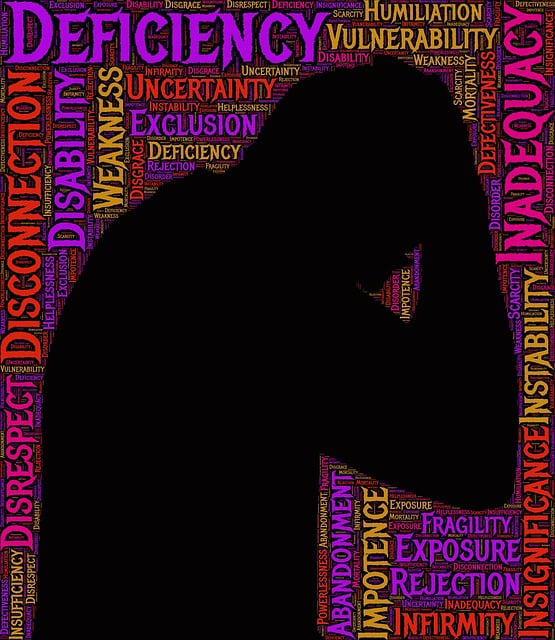In developing awareness campaigns for Castle Rock communities, understanding local mental health needs, especially regarding drug addiction, is key. By evaluating existing programs and adopting evidence-based practices like Mind Over Matter and Compassion Cultivation, creators can design informative and impactful initiatives to reduce stigma and encourage early substance abuse therapy. These campaigns share relatable narratives, integrate healthcare provider self-care strategies, and leverage community outreach to foster empathy and positive behavioral changes. A data-driven approach with clear objectives ensures campaign effectiveness, informs policy, and promotes long-term public health improvements in Castle Rock Drug Abuse-Substance Abuse Therapy.
In Castle Rock, public awareness campaigns play a pivotal role in addressing pressing issues like drug abuse and substance use disorders. Understanding the target audience is key; identifying needs and gaps within the community allows for tailored strategies. Effective communication revolves around crafting compelling messages that resonate with residents. This article delves into best practices: from understanding the Castle Rock drug abuse landscape to implementing and evaluating campaigns, focusing on enhancing substance abuse therapy through targeted outreach and measurable impact.
- Understanding the Target Audience: Identifying Needs and Gaps in Castle Rock Communities
- Crafting Compelling Messages: Strategies for Effective Communication on Drug Abuse Prevention
- Implementing and Evaluating Campaigns: Measuring Impact and Enhancing Future Efforts in Substance Abuse Therapy
Understanding the Target Audience: Identifying Needs and Gaps in Castle Rock Communities

In developing effective public awareness campaigns for Castle Rock communities, understanding the target audience is paramount. This involves delving into the unique needs and gaps specific to this region. Castle Rock residents, like many others, often face challenges related to mental health and substance abuse, such as drug addiction. Therefore, tailored interventions are essential to address these issues holistically. By employing strategies that align with evidence-based practices, such as Mind Over Matter principles and Compassion Cultivation, campaign creators can foster a deeper connection and understanding within the community.
Identifying and evaluating existing mental health education programs design is crucial in gapping analysis. This process helps uncover areas where current initiatives excel and aspects requiring improvement. Incorporating these insights into new campaigns ensures that they are not just informative but also transformative, aiming to reduce stigma and encourage early intervention for substance abuse therapy in Castle Rock.
Crafting Compelling Messages: Strategies for Effective Communication on Drug Abuse Prevention

Crafting compelling messages is an art essential to successful public awareness campaigns about drug abuse prevention. The key lies in translating complex issues into relatable, accessible narratives that resonate with diverse audiences. Effective communication strategies involve sharing personal stories interwoven with factual information about Castle Rock Drug Abuse and Substance Abuse Therapy. Highlighting the far-reaching impacts of drug abuse on individuals, families, and communities fosters empathy and encourages positive behavioral changes. By presenting evidence-based solutions alongside hope and recovery stories, campaigns can inspire action and dispel misconceptions.
Integrating Burnout Prevention Strategies for Healthcare Providers and Mindfulness Meditation techniques within these messages can further enhance campaign effectiveness. Emphasizing the importance of self-care and mental well-being among healthcare workers responsible for delivering drug abuse therapy encourages sustained compassion and resilience. Community Outreach Program Implementation plays a crucial role in amplifying these messages, fostering open dialogue, and creating safe spaces for individuals struggling with addiction to seek help without stigma or judgment.
Implementing and Evaluating Campaigns: Measuring Impact and Enhancing Future Efforts in Substance Abuse Therapy

Implementing and evaluating public awareness campaigns is a multifaceted process that goes beyond initial rollout. Measuring the impact of initiatives like Castle Rock Drug Abuse-Substance Abuse Therapy requires a systematic approach, focusing on both short-term engagement and long-term behavioral changes. By setting clear objectives and employing robust evaluation methods, stakeholders can assess the effectiveness of their efforts. This data-driven perspective allows for iterative improvements, ensuring that campaigns evolve to better serve their intended audiences.
For instance, evaluating emotional regulation programs within substance abuse therapy contexts can reveal valuable insights into how awareness campaigns influence mental health policy analysis and advocacy. Incorporating practices like mindfulness meditation has shown promise in enhancing therapeutic outcomes, underscoring the importance of tailoring interventions to address specific needs. This continuous cycle of assessment and adjustment is key to fostering sustainable changes in public health, ultimately reducing the prevalence of substance abuse.
Public awareness campaigns play a pivotal role in addressing issues like drug abuse within Castle Rock communities. By understanding target audiences and crafting compelling messages, we can effectively communicate prevention strategies. Implementing these campaigns and evaluating their impact through substance abuse therapy is essential for measuring success and enhancing future efforts. This holistic approach ensures that Castle Rock residents receive the support and resources needed to combat drug abuse.














